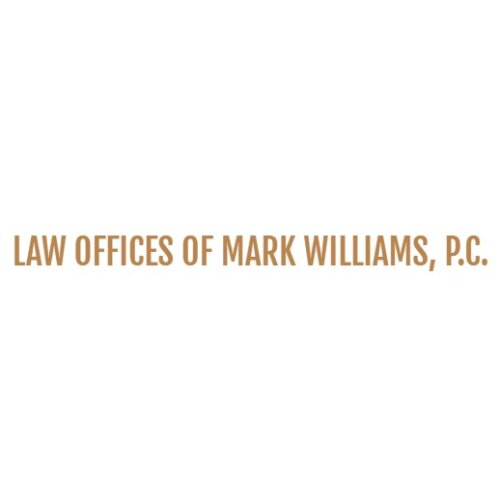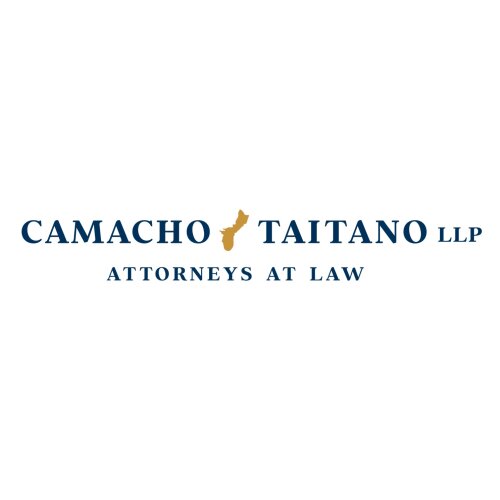Best Nonprofit & Charitable Organizations Lawyers in Hagåtña
Share your needs with us, get contacted by law firms.
Free. Takes 2 min.
List of the best lawyers in Hagåtña, Guam
About Nonprofit & Charitable Organizations Law in Hagåtña, Guam
In Hagåtña, Guam, nonprofit and charitable organizations play a critical role in addressing various community needs and supporting societal development. The legal framework governing these entities is designed to facilitate their mission-driven work while ensuring compliance with regulatory standards. Nonprofit laws in Guam provide guidance on how these organizations can be formed, governed, and dissolved, in addition to detailing the tax benefits and restrictions they may encounter.
Why You May Need a Lawyer
Engaging with the legal aspects of nonprofit and charitable organizations can be complex, and there are several situations where legal counsel may be required. This includes the initial establishment of the organization, ensuring compliance with both federal and Guam-specific tax laws, drafting bylaws, handling employment-related legal issues, and navigating funding regulations. Lawyers can also assist in managing conflicts of interest within the organization and addressing legal disputes that may arise over time.
Local Laws Overview
In Guam, nonprofit and charitable organizations are subject to regulations that may differ from those on the U.S. mainland. Key aspects of local laws for these entities include the registration process with Guam’s government, compliance with the Guam Revised Code regarding nonprofit operations, and specific tax obligations or exemptions under local tax codes. It is also essential for organizations to adhere to requirements set forth by the Guam Department of Revenue and Taxation, which oversees the charitable sector's reporting and compliance duties.
Frequently Asked Questions
What types of nonprofit organizations can be formed in Guam?
In Guam, various types of nonprofit organizations can be formed, including public charities, private foundations, social advocacy organizations, and membership organizations.
How do I start a nonprofit organization in Hagåtña, Guam?
Starting a nonprofit in Hagåtña involves selecting a name, appointing directors, preparing articles of incorporation, and submitting them to the Guam Department of Revenue and Taxation, among other steps.
What tax exemptions are available for nonprofits in Guam?
Nonprofits in Guam may be eligible for exemptions from certain local taxes, and they can also apply for federal tax-exempt status under Section 501(c)(3) of the Internal Revenue Code.
Do nonprofits in Guam have to pay local sales taxes?
Depending on their status and activities, some nonprofit organizations may be exempt from local sales taxes. It is crucial to check with the Guam Department of Revenue and Taxation for specific exemptions.
Can nonprofit board members be compensated in Guam?
While board members can receive reasonable compensation for their services, many nonprofits opt for volunteer boards to maintain a focus on charitable outcomes.
How often must nonprofits file reports in Guam?
Nonprofits in Guam are typically required to file annual reports with the Department of Revenue and Taxation to maintain their good standing and tax-exempt status.
What is required in a nonprofit's bylaws in Guam?
Bylaws should include the organization’s purpose, membership structures, governance practices, meeting protocols, and procedures for amending the bylaws.
How does the dissolution process for a nonprofit work in Hagåtña?
Dissolving a nonprofit involves notifying creditors, settling debts, distributing remaining assets according to a predetermined plan, and filing the necessary paperwork with the regulatory bodies.
What happens if a nonprofit fails to comply with local laws?
Failure to comply can result in fines, loss of tax-exempt status, and potentially, legal action against the organization or its board members.
Can a nonprofit be sued in Guam?
Yes, nonprofits can be subject to lawsuits, often related to employment issues, contract disputes, or compliance failures.
Additional Resources
Consider reaching out to the Guam Department of Revenue and Taxation for detailed information on compliance and reporting requirements. The University of Guam Extension Service and the Micronesian Legal Services Corporation are excellent resources for technical assistance and legal advice related to nonprofit operations. It's also advisable to join networks like the Chamber of Commerce for support and advocacy.
Next Steps
If you require legal assistance for a nonprofit or charitable organization in Hagåtña, start by consulting a lawyer specializing in nonprofit law. You can seek recommendations from local nonprofit networks or use online resources to find qualified attorneys. Additionally, prepare documentation related to your organization’s activities, structure, and compliance issues to facilitate efficient legal consultations. It may also be beneficial to attend workshops or seminars on nonprofit management and legal compliance provided by local organizations.
Lawzana helps you find the best lawyers and law firms in Hagåtña through a curated and pre-screened list of qualified legal professionals. Our platform offers rankings and detailed profiles of attorneys and law firms, allowing you to compare based on practice areas, including Nonprofit & Charitable Organizations, experience, and client feedback.
Each profile includes a description of the firm's areas of practice, client reviews, team members and partners, year of establishment, spoken languages, office locations, contact information, social media presence, and any published articles or resources. Most firms on our platform speak English and are experienced in both local and international legal matters.
Get a quote from top-rated law firms in Hagåtña, Guam — quickly, securely, and without unnecessary hassle.
Disclaimer:
The information provided on this page is for general informational purposes only and does not constitute legal advice. While we strive to ensure the accuracy and relevance of the content, legal information may change over time, and interpretations of the law can vary. You should always consult with a qualified legal professional for advice specific to your situation.
We disclaim all liability for actions taken or not taken based on the content of this page. If you believe any information is incorrect or outdated, please contact us, and we will review and update it where appropriate.









